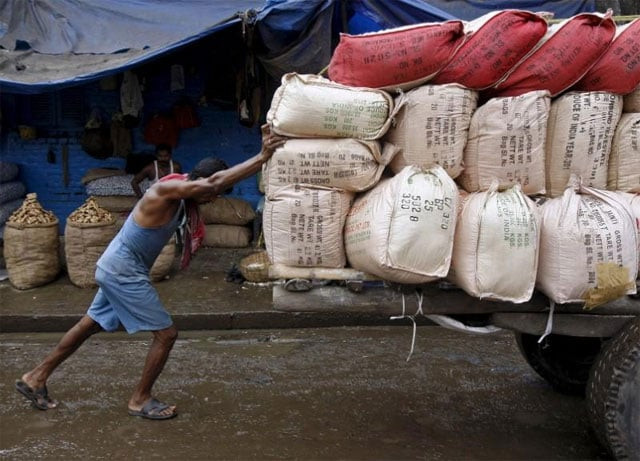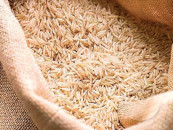Taxing for services: does the government deserve revenue?
Tax collection has not focused on helping marginalised segments

Tax collection has not focused on helping marginalised segments. PHOTO: REUTERS
Humans offered and ensured to the state that they would provide the required resources for smooth provision of these services and security. The state solely had one task; to ensure the well-being of individuals by judicial distribution of resources, services and security.
Participatory thinking helped to evolve different systems for collection of resources and the process culminated with the introduction of a tax system. It has evolved with time and now, the world has some of the most sophisticated systems with the fundamental objective to serve the citizens.
‘SRU stands unrivalled on women, taxation reforms’
Democracy and liberal economy principals sharpened the boundaries between state and business. It forced democratic states to exclusively depend on a tax system for functioning and provision of services and security to individual.
As the liberal economic system grew, business individuals, companies and multi-national companies became stronger. Business communities emerged as big players in economic decision-making.
These interest groups then negotiated with governments to get substantial concessions. Their business strength, outreach, supply chains and influence on money market gave them the upper hand. The states’ revenue started to shrink at that front in terms of percentage of tax collection and states started to divert attention to individuals and citizens to increase revenue.
Pakistan’s case
Developing countries were the worst victims of this trap, as they faced dual pressure, from both local and global business players. Common citizens had to pay to fill this gap as countries increased the taxes on essential items like food and energy etc.
Pakistan, being a developing country, is no exception. It has been observed that essential items are being highly taxed. Petroleum and petroleum products have been one major target for heavy taxation in Pakistan. It is a fundamental item for transportation, electricity and many household chores. Therefore, any type of tax on petroleum and petroleum products has a direct bearing on household expenditures. It also triggers inflation, which compounds the problem.
Food and food items are other favorite items for tax authorities. If we analyse the supply chain, it is clear that producers are not getting the benefit of high prices rather they are being burdened. From farm onwards, everybody extracts a profit, except the producer. The government also benefits by applying GST on income of hotels and other taxes on commodities. An example here could be of the sugar industry. Everyone in supply chain is benefiting except the producer and consumer of sugarcane. The web is so complex that it is almost impossible to decode it.
The government claims that it collects all these taxes for the well-being of society and growth and development of the country. However, government actions convey otherwise.
Priorities
The budget is a document, which shows the priorities and preferences of any government. Major objectives in Pakistan always revolve around the concept of service delivery like education, health communication and basic needs like food, energy and water etc.
NAB recovers Rs6.101m from construction firm
However, the reality is different. A country’s service delivery in all the sectors is highly compromised. Education is the most fundamental in deciding a country’s future growth and development. It not only provides the roots on which the whole fabric of a country or society is being built but is also one of the basic human rights that every individual of the society must attain.
Unfortunately, this sector has never been prioritised by any government, which has led to poorer quality and extremely poor teacher-to-student ratio. According to UNICEF, the average student ratio from 1971 to 2015 has been 39.19 with the highest ratio in 2014 (46.52). The institution lost trust of people and private business flourished in this sector.
The situation in the health sector is not different. Government health facilities are unable to cater to the needs of the population. Even in major cities, more than one patient on a single bed, are common.
Again, the private sector is booming on the back of incompetency of the public sector. On the other hand, food insecurity has increased many folds during the last two decades. According to SDPI, almost 58.8% of the country’s population is food insecure. It has been projected that food insecurity would further increase due to climate change and water crises.
About 27 million people do not have access to safe drinking water. Water supply schemes are wretched and tanker mafia has emerged to fill this gap.
It is becoming really difficult for people to sustain the model at higher rates. Almost 57 million people do not have access to safe sanitation facilities. Resultantly, it is estimated that around 40% of all reported diseases in Pakistan are attributed to poor water quality.
Energy crises are another area, which has not only devastated the business and industry but also the individuals. It was calculated in 2014 that every year country loses almost 2 percent of GDP due to energy crises.
Although the situation has improved, there is need for improvement on this front especially, in terms of governance.
Moreover, energy crises have negatively impacted individuals at psychological and health levels.
These few examples highlight one of the major flaws in spending. At present, taxes are mostly generated from the working class through income tax and consumers through indirect taxes.
But the most unfortunate reality is that the tax for services ideology is missing/very weak in the whole debate on tax reforms. Nowadays, the debate on tax reforms is focused on broadening the tax base without due consideration to the purpose and objectives of taxes. Successive governments have successfully engaged academia and researchers to constantly toe the policy of government and beat the drum of broadening the tax base.
The government has presented amnesty scheme. However, results are contrary to the presented expectation. During the last decade, despite the announcement of amnesty schemes, tax base has shrunk to 1.2 million from 2.2 million.
In this debate, all-powerful stakeholders are benefiting one way or the other.
Both common citizens and marginalised communities are suffering on every front. First, they are being ignored in the distribution of revenue from taxes. Second, they are paying the maximum taxes on the basis of percentage through direct and indirect means. Last but the most important, they are subsidising funding and supporting the lifestyle of the elite.
For me, the real agenda of reform must be ‘taxes for services’. The government must devise tools to negotiate, which clearly spells the use and linkage with service delivery. Moreover, the government has to draw a line between good environment for doing business and un-due concessions or tax amnesties.
The writer is the Head of Centre for Future Policy and Head of Research Coordination Unit, Sustainable Development Policy Institute
Published in The Express Tribune, May 7th, 2018.
Like Business on Facebook, follow @TribuneBiz on Twitter to stay informed and join in the conversation.


















COMMENTS
Comments are moderated and generally will be posted if they are on-topic and not abusive.
For more information, please see our Comments FAQ